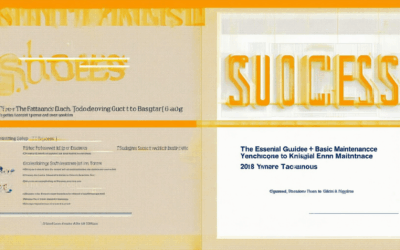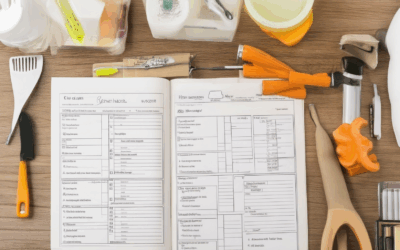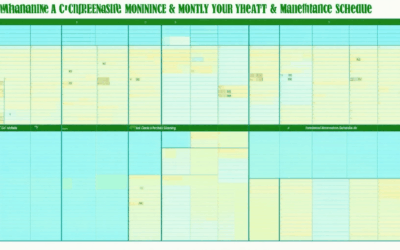Understanding Routine Home Care: Your Essential Guide to Medicare, Elderly Care, and Daily Routines
Routine plays a pivotal role in ensuring the well-being of loved ones, particularly those requiring specialized attention. For many, home care becomes a cornerstone of daily life, offering comfort, support, and a structured approach to managing health and independence. Whether navigating the complexities of Medicare coverage, understanding elderly care principles, or establishing consistent routines, this guide delves into the essential aspects of routine home care. From defining what routine home care entails to exploring the challenges faced by caregivers, this comprehensive exploration provides valuable insights into creating effective caregiving strategies. By addressing key questions, such as Medicare payment policies and the best practices for elderly care, this article serves as an invaluable resource for anyone seeking to better understand and implement a successful home care routine.
Key Takeaways
- Prioritize Safety: Ensure a secure living environment to prevent falls and accidents, using mobility aids and regular home checks.
- Respect Dignity: Preserve their autonomy and cultural sensitivity, providing private spaces and respecting their decision-making.
- Foster Independence: Support daily activities with tools and encourage social engagement to maintain their sense of purpose.
- Protect Privacy: Safeguard personal space and discuss boundaries to ensure comfort and security.
- Enhance Communication: Build trust through clear, empathetic dialogue and active listening to address their needs.
- Provide Responsive Care: Tailor support to their preferences and adapt to their changing needs.
- Offer Compassionate Support: Understand emotional vulnerabilities and create a reassuring environment.
- Stay Committed: Deliver reliable care routines and advocate for their best interests.
- Be Competent: Stay informed about dementia care techniques and disease progression.
- Facilitate Meaningful Connections: Use simple language and active listening to reduce isolation.
- Use Thoughtful Touch: Provide comforting physical contact respectfully.
- Convey Readiness: Maintain upright posture to show confidence and willingness to assist.

What is Routine Home Care?
Routine home care refers to the regular tasks and responsibilities involved in maintaining a clean, safe, and functional living environment. These routines are essential for ensuring the comfort and well-being of household members, particularly for those who may have limited mobility or health challenges. Below is a breakdown of key components and considerations associated with routine home care.
Key Components of Routine Home Care
- Daily Cleaning Tasks: Regular cleaning schedules, including dusting, vacuuming, mopping floors, tidying up living spaces, and washing dishes, contribute significantly to maintaining a healthy living environment.
- Meal Planning and Preparation: Preparing balanced meals, grocery shopping, and food storage are critical aspects of routine home care that promote overall health and reduce stress.
- Maintenance Chores: Tasks such as lawn care, gutter cleaning, and minor repairs ensure the longevity and functionality of your home.
- Laundry and Clothing Management: Managing laundry cycles, folding clothes, and organizing clothing helps maintain a tidy wardrobe.
- Personal Hygiene and Grooming: Assisting with personal hygiene, bathing, or grooming needs can be part of routine home care, particularly for individuals with disabilities or elderly family members.
Creating a Routine
Establishing a consistent routine can simplify daily tasks and enhance efficiency. Here are some tips for effective routine management:
- Set a Schedule: Allocate specific times for each task to minimize confusion and maximize productivity.
- Use Checklists: Create a simple checklist or calendar to track daily and weekly responsibilities.
- Delegate Tasks: Assign chores to family members or hire professional help when needed to distribute the workload evenly.
- Stay Organized: Keep cleaning supplies, tools, and important documents easily accessible to save time and reduce frustration.
Tools and Resources
Efficient routine home care requires the right tools and resources. Consider investing in:
- Cleaning Products: High-quality cleaning agents, vacuums, and microfiber cloths can make the process more efficient.
- Organizational Aids: Storage bins, shelves, and drawer organizers help keep belongings neatly stored.
- Smart Home Systems: Automate routine tasks like lighting, thermostats, and security systems for added convenience.
- App Solutions: Use apps like Todoist or Google Calendar to manage tasks and deadlines effectively.
For further assistance with creating and managing your routine home care, explore our home maintenance resources and expert-guided solutions tailored to your unique needs.
Does Medicare Pay for Home Caregivers?
Medicare can help cover the costs of home caregivers under certain circumstances, but it depends on the type and duration of care needed. Here’s a breakdown of how Medicare covers home caregiving services:
- Home Health Services: Medicare Part B typically covers home health services provided by skilled nurses, therapists, and other qualified healthcare professionals. This may include caregiver services when they’re part of a plan to treat an illness or injury.
- Personal Care: Medicare generally does not cover 24-hour care or personal care (like assistance with daily activities) unless it’s part of a home health program aimed at recovery from an acute illness or surgery.
- Meal Delivery: Medicare does not cover meal preparation or delivery services, even if provided by a caregiver.
- Long-Term Care: Medicare does not cover long-term care services, such as those provided by a caregiver for chronic conditions, as these fall under the category of custodial care, which is not covered.
If you’re considering hiring a home caregiver, explore private insurance options or long-term care insurance policies that may offer coverage for such services. For more details, visit the Official Medicare Website .

Examples of Caregiving Routines
A well-structured caregiving routine provides consistency and comfort for both caregivers and the individuals receiving care. Here are some common components and examples of caregiving routines:
- Morning Routine
- Wake-up and morning hygiene (e.g., brushing teeth, washing face)
- Breakfast preparation and mealtime assistance
- Dressing and grooming support
- Morning activities like playing with toys or reading books
- Mid-Morning Routine
- Snack time and healthy food options
- Interactive play or sensory activities
- Transition to more structured activities
- Lunchtime Routine
- Naptime preparation (e.g., gentle rocking or calming music)
- Mealtime support for older children
- Playtime or quiet activities post-meal
- Afternoon Routine
- Diaper changes or potty training assistance
- Exploration and learning activities
- Storytime or educational videos
- Evening Routine
- Bath or shower support
- Dinner preparation and mealtime assistance
- Pajama time and bedtime routines
- Gentle activities before sleep (e.g., lullabies or soft music)
- Bedtime Routine
- Reading books together
- Kissing goodnight and saying prayers
- Dimming lights and preparing for sleep
- Comfort checks and tucking in
- Departure Routine
- Morning or evening check-ins
- Setting expectations for the day
- Reminders for important tasks
- Wishing a wonderful day ahead
These routines can be adapted based on the age and needs of the individual, ensuring a balanced mix of structure and flexibility. Consistency helps create a sense of security and routine, which is beneficial for emotional well-being and development.

What Are the 5 Principles of Elderly Care?
The five fundamental principles of elderly care revolve around promoting the physical, emotional, and mental well-being of senior citizens. These principles ensure that elderly individuals receive respectful, compassionate, and effective care. Below is a breakdown of each principle along with its significance and practical application.
Safety
Safety is paramount in elderly care. This principle focuses on preventing accidents and ensuring a secure living environment. Key aspects include:
- Providing non-slip flooring and grab bars in bathrooms.
- Ensuring proper lighting in all areas to prevent falls.
- Regularly inspecting the home for potential hazards like loose rugs or electrical issues.
- Assisting with mobility aids and ensuring staircases are safe.
By prioritizing safety, caregivers help seniors maintain their independence and reduce the risk of injuries.
Dignity
Respecting and preserving the dignity of elderly individuals is essential. This principle emphasizes treating seniors with respect and allowing them to make decisions about their own lives:
- Listening to their preferences regarding daily routines and lifestyle choices.
- Providing comfortable and private spaces for personal activities.
- Being sensitive to their emotional needs and cultural background.
- Offering assistance without imposing restrictions on their autonomy.
Dignity ensures that seniors feel valued and respected, contributing to their overall psychological well-being.
Independence
Promoting independence allows seniors to continue living fulfilling lives despite age-related limitations. This principle encourages them to maintain control over their daily activities:
- Providing tools and technologies that aid daily tasks, such as walkers or hearing aids.
- Encouraging participation in social activities and community events.
- Supporting hobbies and interests that bring joy and fulfillment.
- Assisting with tasks while respecting their desire to handle things independently.
Independence helps seniors maintain their identity and sense of purpose.
Privacy
Respecting privacy is a cornerstone of elderly care. Seniors need to feel secure in their personal space:
- Ensuring curtains or blinds are drawn appropriately when needed.
- Providing locked storage for personal belongings.
- Discussing privacy concerns and setting clear boundaries.
- Respecting their need for alone time without overstepping.
Privacy protects seniors’ personal space and fosters a sense of comfort and trust.
Communication
Effective communication is vital in elderly care. It involves both verbal and non-verbal interactions:
- Listening actively to their concerns and feedback.
- Using simple and clear language when providing instructions.
- Being patient and understanding their unique communication needs.
- Encouraging open dialogue about their health and well-being.
Clear and empathetic communication builds trust and ensures that seniors feel heard and understood.
By adhering to these five principles, caregivers can provide elderly individuals with the highest quality of life possible. For more resources on elderly care and home maintenance tips, visit our website .
The 6 Cs of Dementia Care
The 6 Cs of dementia care are essential principles that guide effective and compassionate care for individuals with dementia. These components ensure that care is holistic, respectful, and tailored to meet the unique needs of those affected by dementia.
- Care
Providing consistent, attentive, and personalized care is the foundation of dementia support. This includes understanding the individual’s preferences, routines, and emotional state. Regular monitoring of physical, emotional, and mental well-being ensures that care remains responsive and adaptive. - Compassion
Compassion is crucial in dementia care, as individuals may experience confusion, fear, or emotional vulnerability. Caregivers should approach their duties with empathy, patience, and kindness, creating an environment that feels safe and reassuring. - Courage
Caring for someone with dementia requires strength and resilience. Family members, caregivers, and healthcare providers often face challenges, including emotional fatigue or financial strain. Courage involves staying committed despite these obstacles and seeking support when needed. - Commitment
Consistency and reliability are key. Establishing trust through dependable care routines helps individuals with dementia feel secure and valued. Commitment also involves advocating for their best interests, whether through medical decisions or daily support. - Competence
Proficiency in dementia care is essential. This includes knowledge of disease progression, effective communication strategies, and practical techniques to manage challenging behaviors. Caregivers should stay informed about the latest advancements in dementia care and seek ongoing education. - Communication
Effective communication is vital. Using simple, clear language and active listening helps reduce feelings of isolation. Engaging in meaningful conversations and responding thoughtfully can significantly improve the quality of life for individuals with dementia.
By focusing on these six principles, caregivers can provide exceptional support that fosters dignity, comfort, and overall well-being for those affected by dementia.

What Are the Four Pillars in Caregiving?
The concept of caregiving is rooted in supporting individuals who may require assistance due to various physical, emotional, or cognitive challenges. To effectively address these needs, experts often outline distinct principles or “pillars” that guide caregiving practices. These pillars provide a framework for delivering compassionate, effective, and sustainable support.
Below are the four primary pillars of caregiving:
Gaze
Gaze refers to the ability to interpret and respond to non-verbal cues, such as facial expressions, eye contact, and body language. Effective caregivers must be attuned to these signals to understand the emotional state of those they are caring for. By recognizing changes in gaze, caregivers can anticipate needs and provide timely support, thereby fostering trust and emotional connection.
Speech
Speech involves communication through verbal exchanges. Caregivers play a crucial role in facilitating meaningful conversations and encouraging open dialogue. This pillar emphasizes active listening and the use of empathetic language to validate feelings and provide reassurance. Clear and supportive speech helps individuals feel heard and valued, which is essential for mental well-being.
Touch
Touch is a fundamental aspect of human interaction and comfort. Caregivers should use touch judiciously and respectfully, considering the individual’s preferences and boundaries. Physical contact can provide reassurance, reduce stress, and promote relaxation. However, it is important to tailor touch based on the recipient’s needs and cultural background to ensure it feels natural and comforting.
Verticality
Verticality pertains to the physical act of standing or sitting upright, which communicates confidence and stability. In caregiving situations, maintaining vertical posture can signal strength and readiness to assist. This pillar highlights the importance of nonverbal cues in conveying empathy and capability, helping to build trust and instill confidence in those being cared for.
By focusing on these four pillars—Gaze, Speech, Touch, and Verticality—caregivers can create a supportive environment that addresses both the emotional and physical needs of those under their care. Each pillar plays a unique role in fostering a sense of security, understanding, and connection, ultimately enhancing the quality of life for both caregiver and care recipient.




0 Comments